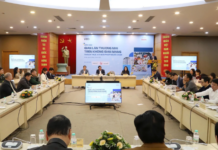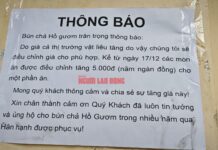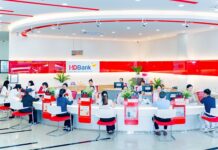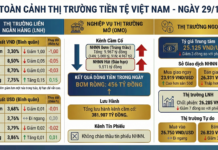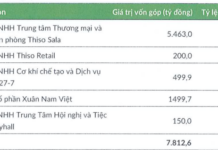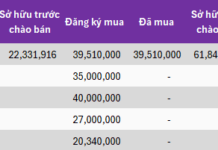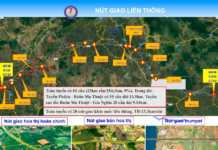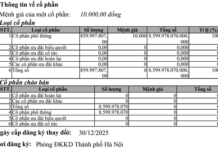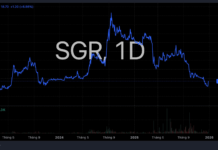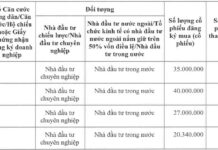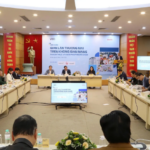How is the economic relationship between Singapore and Vietnam currently, with a specific focus on investment and trade?
Vietnam and Singapore are experiencing a high point in our bilateral cooperation, particularly in economic terms. In 2023, Singapore was the largest source of foreign direct investment into Vietnam, contributing over $6.8 billion, which accounts for almost 19% of total foreign investment. This places Singapore as Vietnam’s second-largest investor, with a cumulative investment of $74.51 billion over the years.
Bilateral trade has also seen impressive growth, reaching S$31.3 billion ($23.19 billion) in 2022; this is almost double the figure from a decade ago when our strategic partnership was first established.
What impact has the Vietnam-Singapore Industrial Park (VSIP) Group had on strengthening these economic ties?
The Vietnam-Singapore Industrial Park (VSIP) Group is a flagship symbol of our strong relationship. Currently, there are 18 VSIPs located across northern, central, and southern Vietnam, with almost half of them still under construction. These parks have already attracted an impressive $18.4 billion in investment capital and created more than 300,000 jobs in Vietnam. The rapid expansion of these parks reflects the strong interest from foreign investors in Vietnam and the Vietnamese government’s successful efforts in creating an FDI-conducive environment.
Are there any areas that remain untapped for further cooperation between the two countries?
Despite the intense efforts to deepen our relationship over the last few years, there is still ample room for increased cooperation. Singapore and Vietnam continue to work closely to support each other, especially amid a challenging external environment. We have stepped up policy coordination and expanded the Vietnam-Singapore Connectivity Framework to include new areas such as energy, sustainability, and innovation.
Additionally, we have launched annual meetings between our Prime Ministers, starting in 2024, to provide high-level direction for our bilateral cooperation. These steps demonstrate our shared commitment to tackling common challenges, especially those related to climate change and digital transformation.
How are Singapore and Vietnam working together towards green and sustainable growth?
Green and sustainable growth is an emerging area of cooperation, driven by our shared goal of achieving net-zero emissions by 2050. As part of this effort, we concluded the Green-Digital Economic Partnership in February 2023 to facilitate cooperation in new growth areas. This partnership is expected to support our green and digital aspirations and serve as a model for ASEAN.
Singapore’s strategic location, its role as a green finance hub, and its strong industry partnerships position us well to support Vietnam’s decarbonization journey and unlock its potential in renewable energy.
What approach are the two countries taking to transition to green industries and investments?
Discussions around sustainability often focus on the speed and cost of transitioning carbon-heavy activities to green standards. A realistic approach is a phased transition with carbon-friendly investments, and Singapore is committed to playing its part. The Vietnam-Singapore Industrial Parks (VSIPs) provide a great example of this, with the first VSIP focusing on light manufacturing, the second on modern logistics, and the third, set to launch this year, positioned as a smart and green industrial park with an onsite solar farm and major “green” investments.
What financial initiatives has Singapore introduced to support climate action, especially in ASEAN?
Singapore is scaling up investment in renewable energy across ASEAN to support decarbonization efforts. We have introduced the Financing Asia’s Transition Partnership (FAST-P), aiming to raise $5 billion for climate action in Asia. This initiative, announced during COP28, focuses on mobilizing capital for green and transition investments, with the Singaporean government contributing concessional capital.
The platform addresses three critical areas: supporting the phase-out of coal-fired power plants, investing in mature renewable energy technologies, and funding emerging green technologies like hydrogen and carbon capture.

Can you provide an update on the progress of the ASEAN Power Grid and the Vietnam Singapore Energy Project?
Singapore and Vietnam are actively promoting the ASEAN Power Grid to enable cross-border trade of renewable energy. The Lao PDR-Thailand-Malaysia-Singapore Power Integration Project (LTMS-PIP) is moving to its second phase, and a similar project involving Brunei, Indonesia, Malaysia, and the Philippines (BIMP-PIP) has undergone a feasibility study.
Additionally, a joint venture between SembCorp Utilities and the PetroVietnam Technical Services Corporation has received conditional approval to export 1.2 GW of low-carbon energy from Vietnam to Singapore. This Vietnam Singapore Energy Project (VSEP) will further strengthen our economic partnership and position us as leaders in the future ASEAN Power Grid.
How are the two countries collaborating in the context of carbon markets and carbon accounting?
Carbon markets are crucial to accelerating our decarbonization efforts, and Singapore and Vietnam are working together in this area. We are collaborating on knowledge sharing related to carbon accounting, ensuring compliance with international rules and practices such as GFANZ, PCAF, and PACTA. Singapore, with its established carbon exchanges and robust internal carbon assessments, can provide valuable knowledge transfer to Vietnam in establishing internationally accepted carbon baselines and benchmarks.
In October 2022, we signed an MoU to collaborate on carbon credits, aligned with Article No. 6 of the Paris Agreement, and we are close to concluding negotiations for its implementation. This agreement will provide a framework for carbon credit projects and facilitate private sector investments in emissions reduction activities.
Beyond economic partnerships, how are Singapore and Vietnam collaborating on broader sustainability issues?
Both countries are impacted by climate change, including rising sea levels and shifting weather patterns. Vietnam, in particular, faces challenges such as saltwater intrusion in the Mekong Delta and disrupted water flows in rivers. Singapore has expertise in urban planning and climate mitigation strategies, and we stand ready to assist Vietnam through technical assistance programs, including at our Vietnam-Singapore Cooperation Center in Hanoi.
What is the outlook for further strengthening bilateral ties between Singapore and Vietnam?
Our bilateral relationship is built on strong foundations of mutual trust and support, established by our former leaders. As our needs evolve, so does our cooperation, and we remain committed to seeking new ideas and opportunities to strengthen our partnership. We are confident in moving forward together, tackling shared challenges, and creating a more sustainable future for our peoples.

